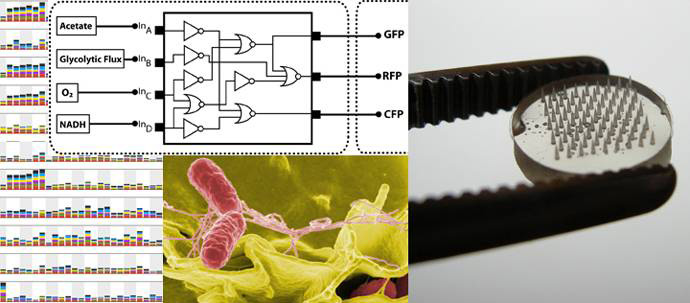
"Measure, Model, Manipulate, Make" (A collage of Course 20 lab images.) (Image courtesy of the Biological Engineering department at MIT.)
Featured Courses
MIT is a leader in the field of biological engineering, engaging in visionary research and collaborations with industry and government.
Our research in the synthesis of engineering and biology technologies results in major innovations in diverse areas, including developing imaging systems to help understand the origins of cancer and harnessing biomaterials for controlled drug release and tissue regeneration.
Students, professors, and researchers in biological engineering explore issues of physical and chemical sciences such as biochemistry, biophysics, pharmacology, and toxicology from both a molecular life science and an engineering perspective. Throughout the curriculum, our educational programs interweave major concepts of biological engineering with a number of important focus areas, including:
- Biological and physiological transport phenomena
- Biological imaging and functional measurement
- Biomolecular engineering and cell and tissue engineering
- Computational biology and bioinformatics
- Genetic toxicology
- Macromolecular biochemistry and biophysics
- Metabolism of drugs and toxins
- Microbial pathogenesis
- Carcinogenesis
- Biomechanics
- Genomics, proteomics, and glycomics
Biological Engineering Courses
-
- Course #
- Course Title
- Level
Archived Biological Engineering Courses
Some prior versions of courses listed above have been archived in OCW's DSpace@MIT repository for long-term access and preservation. Links to archived prior versions of a course may be found on that course's "Other Versions" tab.
Additionally, the Archived Biological Engineering Courses page has links to every archived course from this department.










